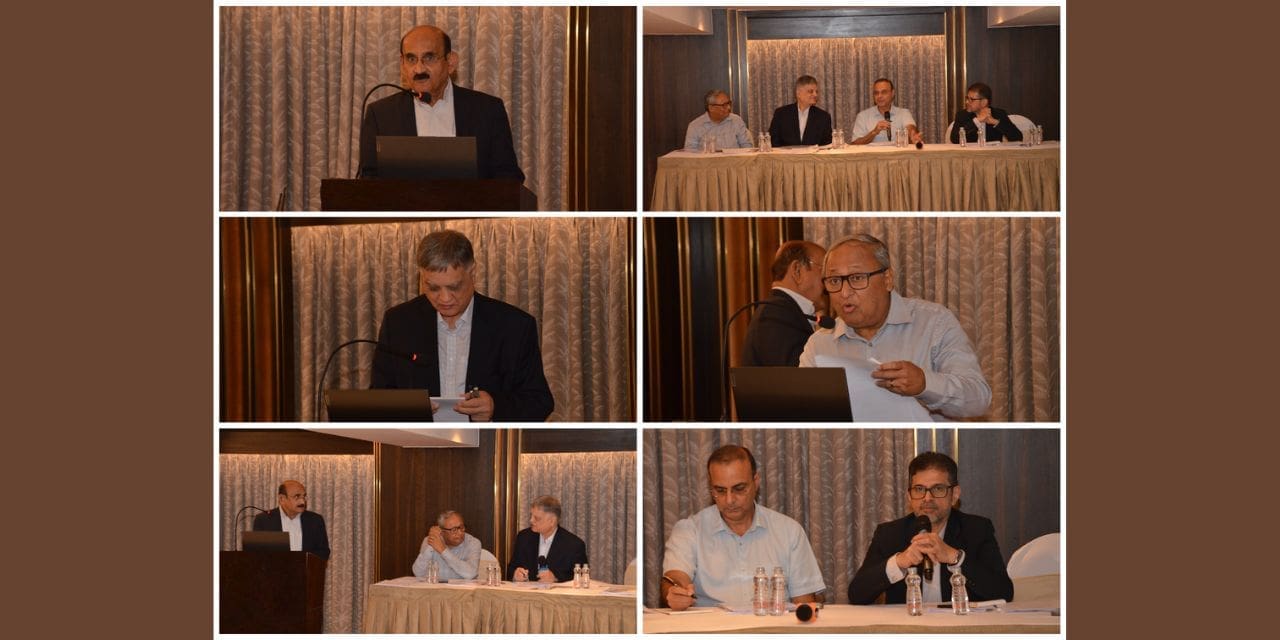Highlights from the Wool Research Association’s Industry Meet
The Wool Research Association (WRA) hosted an industry meet on August 30, 2024, at Hotel Satkar Residency in Thane, bringing together a distinguished group of dignitaries, industry leaders, and representatives from various sectors, including the Textile Commissioner and Vice-Chancellor of Maharashtra Agricultural Universities. This event served as a platform for vibrant discussions focused on the future of textile innovation.
Highlights of the Event
The gathering featured interactive discussions that emphasised advancements in textile technology, particularly in Sportech and wool-related innovations. Attendees had the opportunity to view cutting-edge developments, showcasing WRA’s commitment to excellence in textile research and development.
A significant outcome of the meeting was the signing of a Memorandum of Understanding (MOU) between WRA and NanoSafe Solutions Pvt Ltd. This partnership aims to jointly develop and commercialise research outcomes, particularly focusing on technology transfer agreements that cover intellectual property rights and royalties. The project will work on creating an aqueous-based emulsion formulation designed to treat biodegradable fabrics, such as cotton and blends, with functionalized treatments to inhibit microbial growth, deter rodents, and enhance UV resistance through various application techniques.
Key Points Discussed
Several important points were raised during the event by industry representatives and the Ministry of Textiles:
- Support for Centers of Excellence (COE): The Textile Ministry expressed its commitment to support COEs through advice, financial assistance, and strategic planning for the sector.
- Collaboration Opportunities: Financial institutions were encouraged to participate in conferences to explore collaboration opportunities.
- Monthly Forums for Sports Textiles: A proposal was made to establish a monthly forum dedicated to sports textiles to discuss strategies and challenges.
- Textile Clusters: The need for dedicated textile clusters focusing on sports products was highlighted.
- Reducing Fabric Imports: There was a consensus on the necessity to reduce fabric imports for sports textiles.
- Diverse Applications of Wool Fibres: The discussion included the various applications of wool fibres in industries beyond textiles, including beauty and construction.
- Production-Linked Incentives (PLI): The current PLI schemes were noted to primarily benefit corporate entities, with a call for the government to extend these incentives to small and medium enterprises (SMEs).
- Skill Development: The industry emphasised the critical need for skill development and the establishment of educational institutions to support this.
- Industry-Agriculture Collaborations: The importance of partnerships between agricultural institutes and the textile industry was underscored.
- Retention of Students in Industry: A recommendation was made for more students to pursue careers within the textile industry rather than moving to other sectors.
- Support for COEs: The Ministry will provide advice, funding, and strategic planning to COEs.
- Collaboration: Financial institutions are urged to participate in conferences to explore partnerships.
- Sports Textiles Forum: A monthly forum for discussing strategies and challenges in sports textiles is proposed.
- Textile Clusters: Dedicated clusters for sports products are needed.
- Fabric Imports: There’s a consensus on reducing fabric imports for sports textiles.
- Wool Applications: Wool’s applications in industries like beauty and construction were discussed.
- PLI: Current PLI schemes primarily benefit large corporations; extending them to SMEs is recommended.
- Skill Development: The industry emphasises the need for skill development and educational institutions.
- Industry-Agriculture Partnerships: Collaboration between agricultural institutes and the textile industry is important.
- Student Retention: Encouraging more students to pursue careers in the textile industry is recommended.

